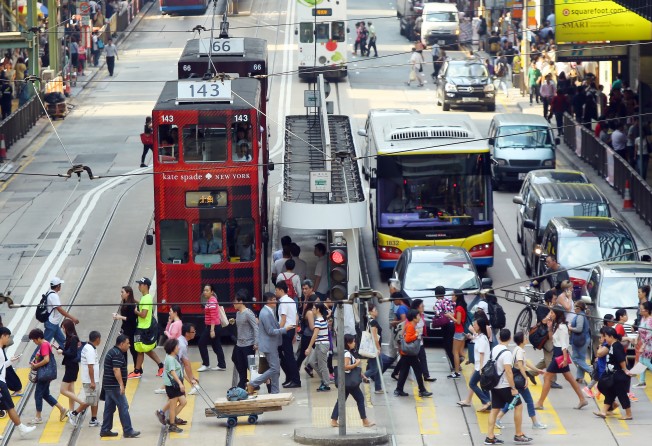Electronic road pricing can work in Hong Kong – alongside other measures

A public engagement for introducing electronic road pricing (ERP) in Hong Kong was launched late last year and will end in March. Conceptually, ERP makes sense but its impact in Hong Kong could be much less than in Singapore or London, unless it is coordinated with a number of other measures.
In the 2001 feasibility study, the proportion of traffic in Central represented by private vehicles was an unusually low 11 per cent. To change the behaviour of half of these, as envisaged in the study, would require an enormous charge; and even then, the impact on overall traffic numbers would be modest.
All vehicles contribute to the congestion, so all (except emergency vehicles) should pay. Minibuses, franchised buses and trams would pass the cost onto their passengers but this would not likely be significant when divided among all passengers. Taxis will be more affected, amid no doubt vociferous objection from taxi drivers and owners, as a congestion charge would lead to some change of passenger behaviour. Trucks could change their behaviour too. More radically, perhaps we can make the charge negative for trucks off-loading at night (that is, pay them).
Overall, on its own, ERP may therefore have only modest impact, so the government needs to combine ERP with more interventionist measures:
● It should revisit the one-way system as many vehicles in Central do not want to be there in the first place.
● Revisit some bus and minibus routes to stop short of the cordon for charging, and passengers may transfer to the MTR or ferry, or walk. Such interchanges should be efficient, otherwise passengers may prefer to stay on the bus or minibus, even with a bit of congestion.
● Limit trucks’ loading and unloading to off-peak hours. Move on drivers who loiter.
● More generally, encourage people to not travel at peak hours in the first place. Can the government lead the way by promoting flexitime or decentralising more departments away from Central?
● Encourage people to walk by requiring private building owners to provide more cover from the rain; by expanding the ferry network (think of Sydney); and by pedestrianising not just Des Voeux Road but also SoHo.
The government should not be shy about the fact that electronic road pricing ought to make a profit. Therefore, it should explain what it intends to do with the money – invest more for pedestrians and in the MTR, for example, which would become even more congested than it is now if passengers switched away from road transport in response to ERP.
Andrew Kinloch, Logie Group Limited